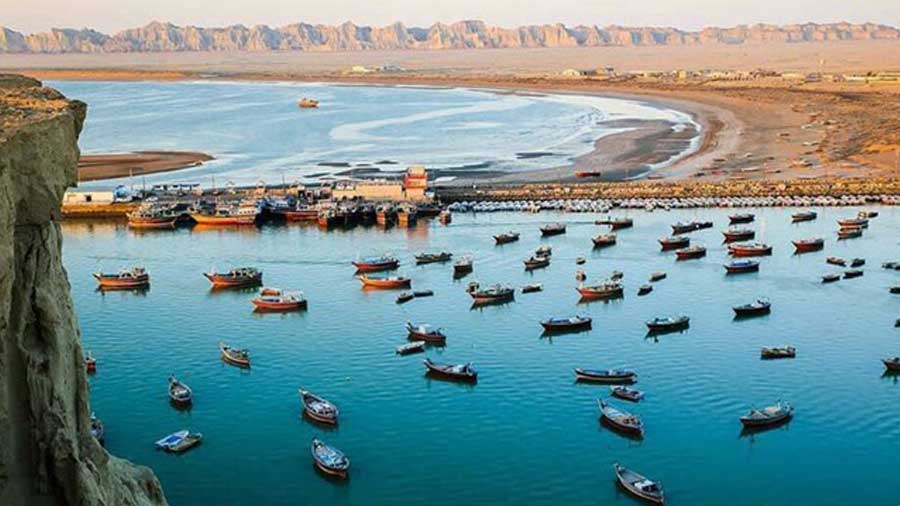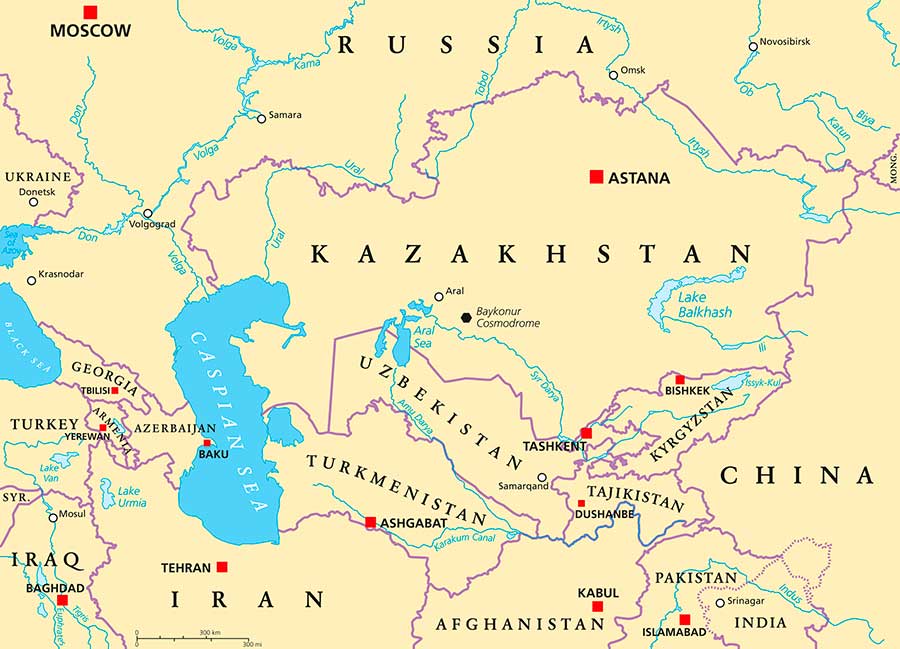Caspian Middle Corridor Servicing Central Asia Booms
Iran-Uzbek non-energy bilateral trade is up 103% YoY

Chabahar port is undergoing significant development
The Iranian Customs Organization has stated that during last year 776,137 tons of non-oil products worth US$517 million were exchanged between Iran and Uzbekistan, a 103% increase year on year.
Iran’s share of exports to Uzbekistan during that period was 714,491 tons, worth US402 million, a 146% increase compared to 2020.
Iran imported 62,000 tons of goods from Uzbekistan, valued at US$115 million, 26% more than in the same period.
Iran’s non-energy exports to Uzbekistan included mainly dairy products, cleaning detergents, agricultural products, construction material, tar, industrial oils, mineral products, chemical and petrochemical products, sanitary items, refinery petro-products, pipes and profiles, home appliances, textiles, floor mats, ironware, industrial machines, and furniture. Uzbekistan’s imports from Iran mainly included various types of threads, silk, edible seeds, particularly barley, and kaolin.
The main reason for the upturn in turn is improved connectivity along the ‘Middle Corridor’ route, which extends from Iran’s Caspian Sea ports and reach Turkmenbashi Port on the Turkmen Caspian Sea coast. From there they are transferred to rail freight and sent on to Uzbekistan. It is a highly important route for Uzbekistan in particular as the country is landlocked. It is also the only Central Asian country with a substantial European Union trade agreement, which covers thousands of products. These are generally shipped from Turkmenbashi to Baku Port in Azerbaijan and then sent by rail and Black Sea maritime connections to EU ports in Bulgaria and Romania.

From Iran’s Caspian sea ports, Uzbekistan goods can use the INSTC network to access markets throughout Iran and to via Iran’s Chabahar port on the Persian Gulf to India. The three countries have been discussing these trade routes, which Iran has been motivating by providing a 70% discount on tariffs and lowering the cost of transit of goods through Chabahar Port, resulting in an increase of freight throughput at Chabahar to two million tons in 2020 as opposed to 200,000 tons in 2015.
China logistics and haulage companies are also investing in this regional sector.
Related Reading
About Us
Chris Devonshire-Ellis is the Chairman of Dezan Shira & Associates. The firm assists British and Foreign Investment into Asia and has 28 offices throughout China, India, the ASEAN nations and Russia. For strategic and business intelligence concerning China’s Belt & Road Initiative please email silkroad@dezshira.com or visit us at www.dezshira.com





